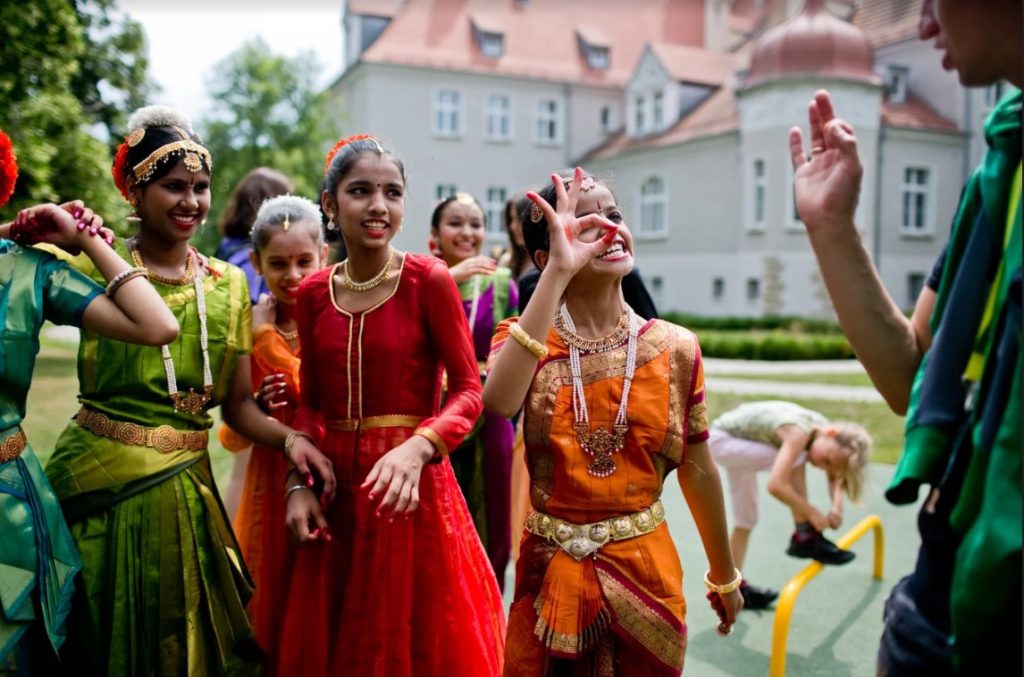
There is something quintessentially visceral about being humans, that has for centuries helped us persevere through trying times. While,the allure of a sedentary and comfortable life enabled by industrialization and rapid technological growth has captivated our attention,it has created a culture, where, according to Dr. Brene Brown, “…there is no form of self-expression that makes us feel more vulnerable than dancing.” Yet the fact holds true, that any art form, especially dance remains a fundamental aspect for healing trauma,stress and other physiological discomforts.
ITISARAS, in a recent interview with Nehha Bhatnagar ventures into the realms of arts and artists to take a closer look at the vicissitudes brought about by the pandemic and in response how the artists and their arts alike are holding their ground.
Nehha Bhatnagar is a prominent young Classical Danseuse from Delhi, India. She is a senior disciple of Padma Bhushan awardee, Dr. Saroja Vaidyanathan. She has travelled to over 15 countries for her recitals, both solo and in a troupe and has performed in 19 of India’s 29 states. Nehha is also the Founder-President of a unique arts organization, Sarvam Foundation, where she curates and holds massive arts festivals to demystify performing arts and artistes.
Sarvam Foundation has a special project called Sarvam Shakti which takes the Classical Arts to the underprivileged girl child thereby making them cultural ambassadors with international and national tours for showcasing their skill. Nehha is also a regular speaker at TEDx forums and is herself an organizer and curator.
The interview between Kunal Chauhan,founder of ITISARAS and Nehha Bhatnagar answers a variety of concerns related to the impact of the pandemic on performing artists, specially classical dancers, the initiative and role of the government in dealing with it, how the pandemic has affected the workings of her foundation and she also talks about a post-pandemic world.
Regarding the effect of the pandemic on performers like herself and others, Nehha Bhatnagar discusses how the quarantine, isolation etc led to her practicing more abhinaya (emotions) as an expression of uncertain times and the undying hope. Furthermore, she found new ways of expression as a performer by exploring new spaces like parks and connecting more with nature. According to Nehha Bhatnagar, the pandemic hasn’t been so tough on her as a performer because she is looking at other avenues of interest. She says,”For me the answer would be different. I did perform avidly and seriously till about 3 years ago but now I’m not doing as much with performance and travel as I used to. The reason being I’m shifting gears,Sarvam Shakti has become one of the key focuses of my work. The other reason being I’m doing a lot of studying,this diploma in social work and in meditation. There’s a lot going on in my life right now.”
For professionals like her,she says digitisation of performance has brought in a lot of opportunities,”No questions asked about that. It’s needed, it’s here to stay.” However,while saying so she is apprehensive about the ubiquity of the camera and the constant need for too much visibility in the social and digital world.
She further comments on the issue of the new spaces that are being utilized by performers, ranging from balconies to parks. For her space does not matter as long as the art form is respected.” Most artists don’t belong from well-to-do places and don’t have their own studio spaces to practice or their gurus’ studio where they can go and so many other things. They have limited spaces, where are they going to dance? So it’s perfectly fine. Whether you are respecting the art form is all that matters. We have to move and change with time. So I don’t agree with it being wrong in any way,” says Nehha Bhatnagar.
The danseuse then talks about her own endeavour with Sarvam Shakti,part of her Sarvam Foundation and how they are managing the onslaught of the pandemic. For around the 240 girls enrolled in Sarvam Shakti, who belong to marginalized groups, the pandemic has definitely not been kind with 5-6 family members stuffed in a small dingy room and many of the girls’ parents losing jobs. The holistic curriculum of Sarvam Shakti with its focus on spiritual,emotional, physical and mental development brought home the amazing healing quality of arts. Furthermore, Sarvam Shakti also ensured ration,proper tuition and mobile devices for all the girls through a campaign where a lot of people helped.
Following up on this, Nehha Bhatnagar comments on the dearth of aid and respect towards performing arts and artists alike, “Unless you are well connected, you come from a lineage, you have networking skills to put yourself out there. I’ve always been very vocal about it. Even a person like me who may just want an appointment won’t get it no matter what I may be ‘doing for the society’.” “It’s just not seen as equally valuable like Bollywood or cricket. Even with Netflix and other new channels somehow we have been unable to package it together and put it out there and thus,somewhere you have to draw the line regarding the sustainability of your life by using art in places like Delhi and generally in India.”
Even with Sarvam Shakti, she iterates, “dance is a tool, a skill for so many other things that you will develop physically,mentally, spiritually and emotionally. It’ll be a tool to earn money should you want to teach dance in a school or privately. But don’t expect to make it a full time job no matter how talented you are.There is no money in it. It’s very difficult to sustain.”
Regarding the sustainability of arts and artists in places like India, Nehha Bhatnagar urges for an urgent shift in perception. She says, “It has to be a top down initiative where art has to be made mandatory as other subjects are made.Start thinking of it in economic terms and create policies around it,so that when people become artists, of course there is more consumption of art,more skill learning, teachers doing more, professors grow, consumption grows.” She reminds us that the fundamental aspect of being human lies in our ability to touch and form connections.” There is something about the Chinese proverb which says, “When you have only two pennies left in the world, buy a loaf of bread with one, and a lily with the other’.Even animals are in better touch with themselves. We should take advantage of the evolutionary development in humans and try to be in better touch with ourselves, instead of just exploring capitalist stuff.”
In the penultimate section of the interview, she asks people to support the performing arts and artists in their own capacity. “There are paid concerts,see if you can attend them. Money does go to the artist. Do follow artists and encourage them. See where you can involve them in your organisation.”
Finally, Nehha Bhatnagar paints for the viewers a picture of a post pandemic world. “It can go in a positive way if we can start using technology more efficiently. And people have. A lot of teachers are teaching online and people are learning. Teachers are getting paid and students are learning. Not just free ones, but paid performances can start happening online as well. These aspects are great. I have even taken some workshops online. I know it’s not the same ,but it’s not bad either. So I would say let’s not think of what negative things will happen,I’m sure there will be,but let’s focus on the positive and make the best use of it,even if it means limited classes and numbers. It’s ok. We know as humans we have been resilient with every possible catastrophe so we can be resilient now too.”

The interview is just one among the million of other stories that are waiting to be told. But it is real,it encourages us and affords us the sensibility to do our part just like ITISARAS is doing by drawing a petition to the government for the aid of performing artists and how Sarvam Shakti is tirelessly helping underprivileged girls. It is now more than ever that we should stand with them steadfast in their endeavour to build back our world from the rubble.
Click below to watch the full interview:
We, at Itisaras, believe that awareness and action are integral for change, and for the same we have launched a petition on change.org that urges the Ministry of Culture to extend institutional support to the people of the Performance Arts sector. Please join us and sign the petition – http://chng.it/zhFTnGdPMm


